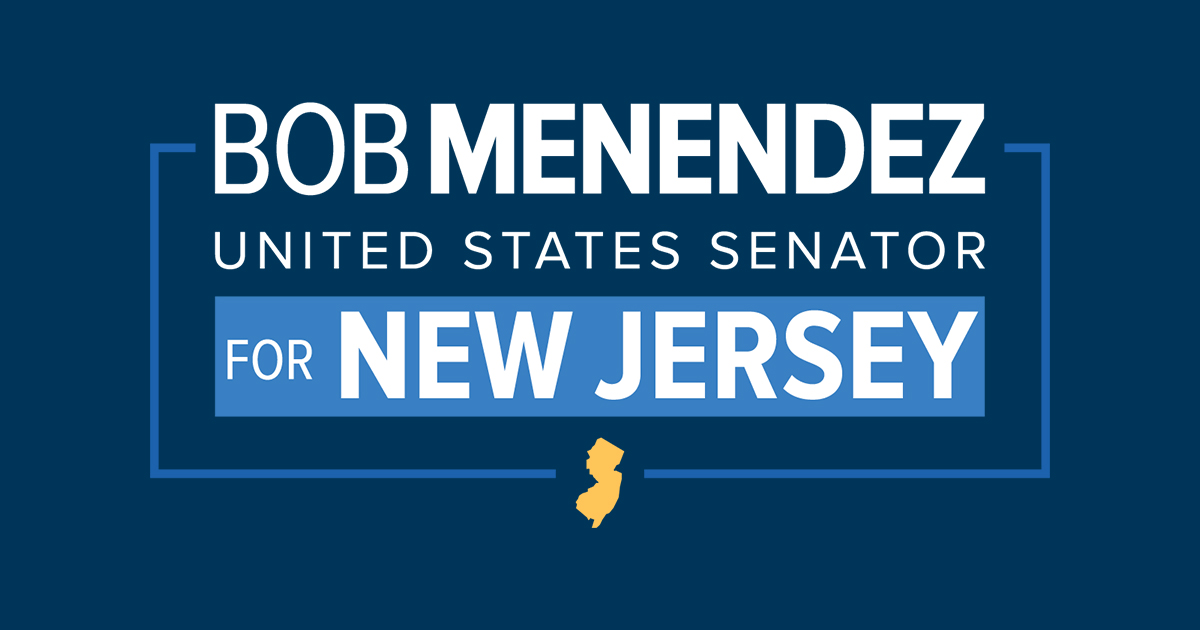Source: United States Senator for New Jersey Bob Menendez
WASHINGTON, D.C. – U.S. Senator Bob Menendez (D-N.J.), a senior member of the U.S. Finance Committee, today questioned witnesses during a hearing entitled “Tax Incentives in the Inflation Reduction Act: Jobs and Investment in Energy Communities” about how clean energy industries, such as offshore wind, create new jobs and opportunities in many underserved communities in New Jersey and across the country.
“The IRA, working alongside other pieces of legislation passed by Congress, has provided, in my mind, needed stability and certainty to the clean energy industry,” said Sen. Menendez. “This has helped to ensure and enable and protect large-scale investments made by the offshore wind industry in communities like my home state of New Jersey that historically have been economically underdeveloped—from the New Jersey Wind Port in Salem County that will support up to $500 million in new economic activity, to the $250 million manufacturing facility at the Paulsboro Marine Terminal. Additionally, the offshore wind projects furthest along in the development process in New Jersey have made strong commitments to using union labor, ensuring that the jobs they create are good-paying union jobs.”
[embedded content]
In response to a question from Sen. Menendez during the hearing, Dr. Katie Harris, a Legislative Director for BlueGreen Alliance, highlighted the Low-Income Communities Bonus Credit, which provides incentives for housing clean energy projects in underserved communities, and the Prevailing Wage and Apprenticeship Standards, which improve job quality and create accessible jobs for communities that might not have previously had access to those work opportunities.
Sen. Menendez also inquired about how the Inflation Reduction Act (IRA) contributes to the training and development of the next generation of highly-skilled American energy workers. Dr. Harris referred to the apprenticeships she had previously mentioned and stated that these requirements are extremely important to ensure American energy workers have access to highly trained, skilled union labor to open the pipeline of opportunity for years to come.
“Now, the Inflation Reduction Act isn’t just helping us to meet our emissions reduction targets, but it’s a driver, as we’ve talking about here, of good paying, clean energy jobs. In New Jersey alone, we expect to see over 300,000 new green jobs added over the next decade, demonstrating the need for a strong workforce and manufacturing base over a wide range of diverse clean energy sectors,” added Sen. Menendez. “We’re talking about reinvigorating American manufacturing—a sector that has been devastated by offshoring. Yet, if my colleagues have their way, all this progress would be wiped out.”
The Senator also asked Patty Horvatich, Senior Vice President for Business Investment at Pittsburgh Regional Alliance, if the Inflation Reduction Act facilitated bringing in high-quality, energy jobs, and if she believed that rolling back the majority of these new clean energy tax incentives would impair the ability of her region to see a continued increase in energy sector jobs.
Sen. Menendez concluded his questioning by highlighting the transition from fossil fuel to clean energy will impact the communities most affected by asking Dr. Harris how the idea of a just transition, along with the energy community provisions of the Inflation Reduction Act, has enabled workers and environmental advocates to come together to support the vital policy changes necessary to avoid the worst impacts of climate change.
“The Inflation Reduction Act creates key incentives to assist energy communities—generally former fossil fuel communities—diversifying their economies and to create new high-paying jobs in cutting edge industries. I think it would be wrong as policy to say ‘Sorry, we’re moving to a new, clean energy economy. And so, you’re just left behind,’” said Sen. Menendez. “That’s one of the challenges we had with trade where we said ‘This is the new economy; some people will benefit from it – others will not. And for those of you who do not, you’re left behind.’ That’s not what we seek to do here.”
In March, Sen. Menendez joined the Biden Administration in announcing the U.S. Department of the Treasury’s approval to expand access to capital for small businesses under the American Rescue Plan’s State Small Business Credit Initiative (SSBCI) which included the Clean Energy Business Financing Program, a loan participation program that provides loans to small businesses to deploy clean energy technologies.
In August of 2022, the Inflation Reduction Act was signed into law and delivered substantive solutions to address the most pressing challenges our nation faces, including lowering the cost of prescription drugs to help seniors struggling to make ends meet. That same month, the Senator highlighted the impacts the IRA would have on hardworking families across New Jersey by capping the out-of-pocket costs to $2,000 for Medicare beneficiaries, expanding access to health care and creating millions of good-paying jobs.
###
